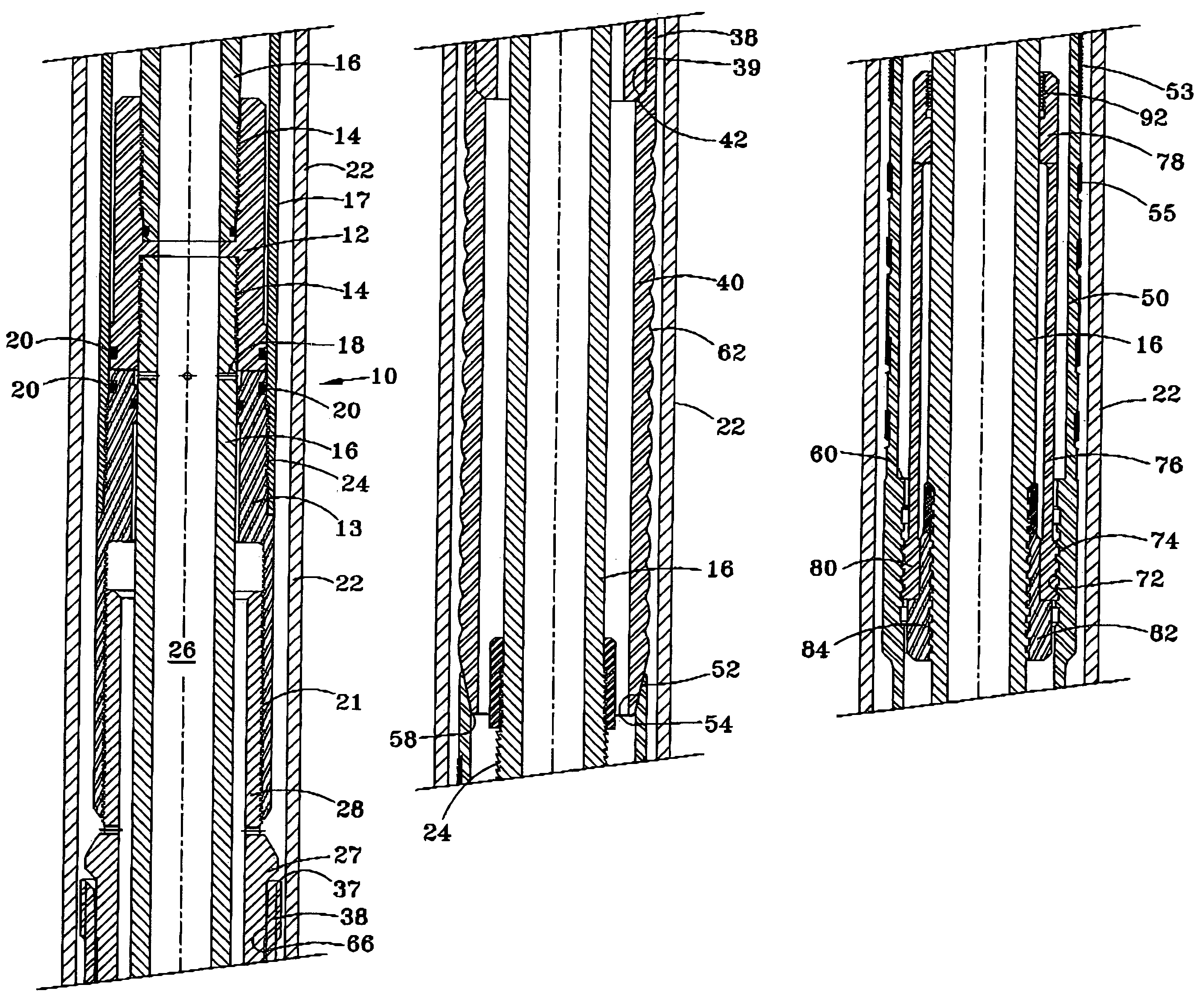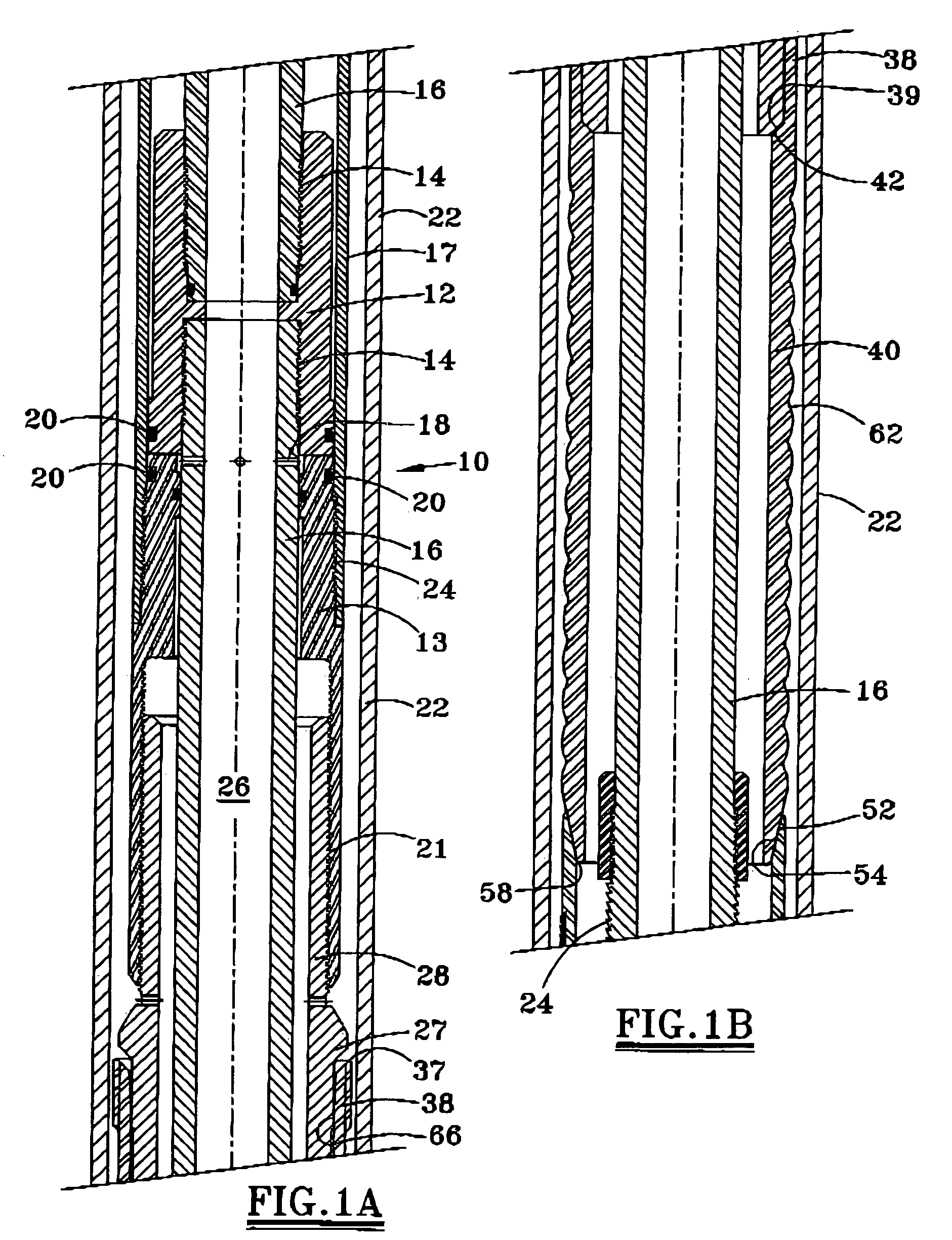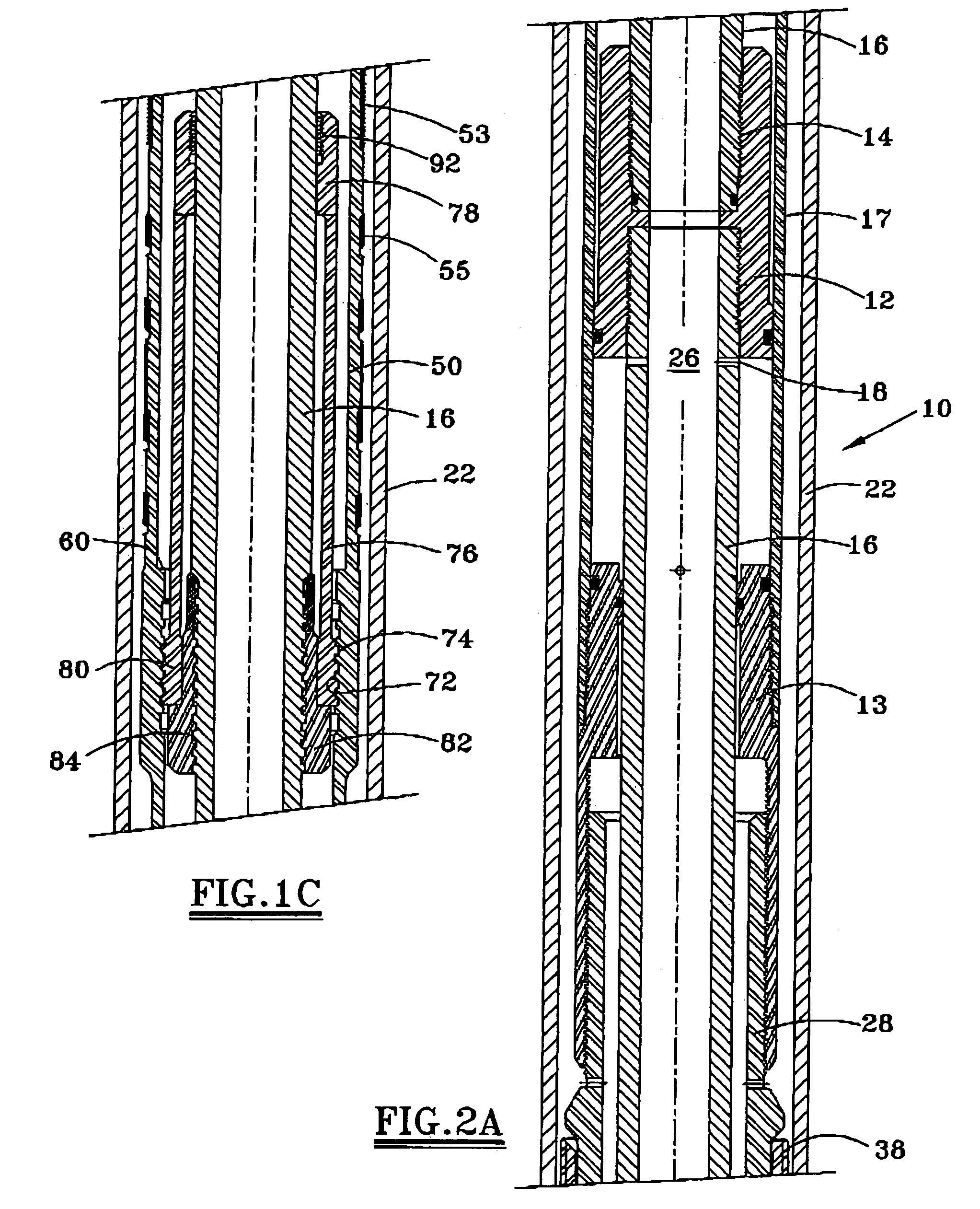Expandable liner hanger system and method
a liner hanger and expandable technology, applied in the direction of drilling casings, drilling pipes, borehole/well accessories, etc., can solve the problems of affecting the setting operation, difficult retrieval, and other liner hangers and running tools cannot perform conventional cementing operations, etc., to achieve the effect of high reliability and construction more economically
- Summary
- Abstract
- Description
- Claims
- Application Information
AI Technical Summary
Benefits of technology
Problems solved by technology
Method used
Image
Examples
Embodiment Construction
[0024]A liner may be conveyed into the well to the desired setting or suspension depth by a drill pipe or work string connected to a multi-stage, double action hydraulic setting and releasing tool (running tool) that furnishes the necessary forces to expand the liner hanger assembly into engagement with the casing. The running tool may be constructed of sufficiently high strength steel to support the weight of the liner as it is run into the well and to provide the necessary force to expand the liner hanger assembly. Additionally, the running tool preferably has a sufficiently large internal bore in its central mandrel to enable passage and displacement of cement for cementing the liner within the well bore.
[0025]Referring to FIG. 1A, the upper end of the running tool actuator assembly 10 may include a top connector 12 structurally connected by threads 14 to the running tool inner mandrel 16, which in turn is structurally at the lower end of a work string. A throughport 18 in the ma...
PUM
 Login to View More
Login to View More Abstract
Description
Claims
Application Information
 Login to View More
Login to View More - R&D
- Intellectual Property
- Life Sciences
- Materials
- Tech Scout
- Unparalleled Data Quality
- Higher Quality Content
- 60% Fewer Hallucinations
Browse by: Latest US Patents, China's latest patents, Technical Efficacy Thesaurus, Application Domain, Technology Topic, Popular Technical Reports.
© 2025 PatSnap. All rights reserved.Legal|Privacy policy|Modern Slavery Act Transparency Statement|Sitemap|About US| Contact US: help@patsnap.com



